Books On Indian Mythology | 10 Must Read Mythology Stories | Reviews, Ratings, Critiques And More
Sep 15, 2019 • 387 views
When we talk about India, it's impossible to not branch out it's rich and diverse Mythological expanse in our conversation!
India, has come a long way in aspects of Industrialization, Urbanization and rationalizing judgements, but Mythology has maintained its relevance till date.
In this article, you're going to find some of the modern renditions and perspectives of the already told Mythological stories and epics. This article is written in collaboration with a fellow blogger- Vandana V, she has reviewed for us two books and a trilogy in this article! She has an instagram page @coffeewithbookmark and a blog on WordPress (visit) that you should definitely visit for some quality reviews!
The Palace of Illusions:
This one's already got the share of popularity it deserves but if you haven't read it, it's really not too late to cut the ribbon!
Written by fine novelist- Chitra Banerjee Divakaruni, The Palace of Illusions-as the title suggests, is about this whole grandeur of things with a number of layers to an extent where they become elusive and countless to count-as mainly the complicated relationships highlighted.
For once, there's been written a story that doesn't take the shield of feminism and portrays women as merely humans who can have issues in their lives. The author hasn't tried to be too strong on the emotions and let the story remain open to the audience's perception.
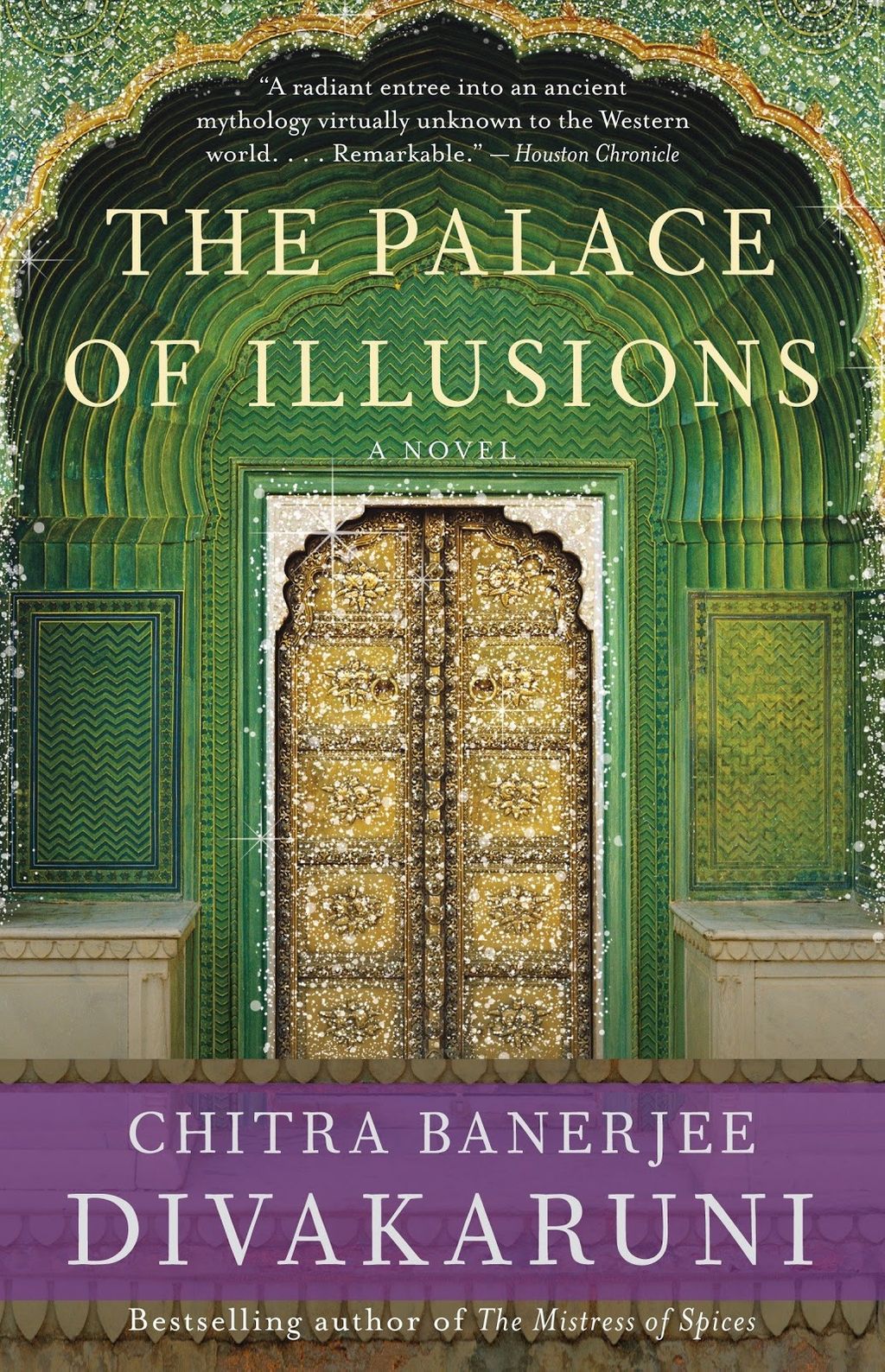
Reference: Mahabharata
This story, of course, revolves around Draupadi- the wife of the Pandava Brothers.
She was the daughter of Drupad- hence Draupadi.
She was the "Princess" of the Kingdom of Panchala- hence Panchaali.
This has been her Identity before she knew it was.
She was born from Fire- hence Yajnaseni.
Little had she known that her life was to be spent in ashes!
The author has not, however, shown any bias throughout the story, not even on grounds of “feminism”, which is appreciable.
The story explains many instances such as that of Draupadi's feeling of seclusion in her own father's kingdom, the irony of being called a Princess.
She has been critically named 'kritya' because she seemed to have brought doom to her "family"- if she could call it one, on an emotional level.
The best part about the book is how the female viewpoint has been given consideration in a patriarchal society.
“There's been 300 decades to the time since the Mahabharata gained significance, but-
Empowerment started then, failed then.
Empowerment continues still, no great interventions have been made hence..
This is probably because the light at the end of the tunnel is being covered by the guards of those in power.”
Chitra Banerjee, quite patiently addresses the complicated friendship of Draupadi with Krishna.
Infact, all the characters like those of her mother in law- Kunti and Gandhari- the wife of Dhritarashtra are very well put together in Banerjee's vision.
In various interpretations, Draupadi has been seen to suffer ever since she triggered one of the Kaurav brothers- Duryodhana's ego and hence the huge war, but certainly Draupadi's suffering was much deep-rooted than this.
The sequence in which the different characters were introduced in the book, is commendable.
There is no possibility of getting confused at any point during the novel which is something that attracts more readers and hence the positive reviews!
All in all, this book is quite enlightening for a lay person and more so, for those who take great interest in Mythological Compositions!
Goodreads: 4.2/5
The Rozabal Line
This mythological fiction has a unique storyline. A group emerges as the Lashkar-e-Talashtar, the members of which have an uncanny resemblance of their fates with Christ and his apostles. This group seeks to accomplish the Armageddon Agenda.
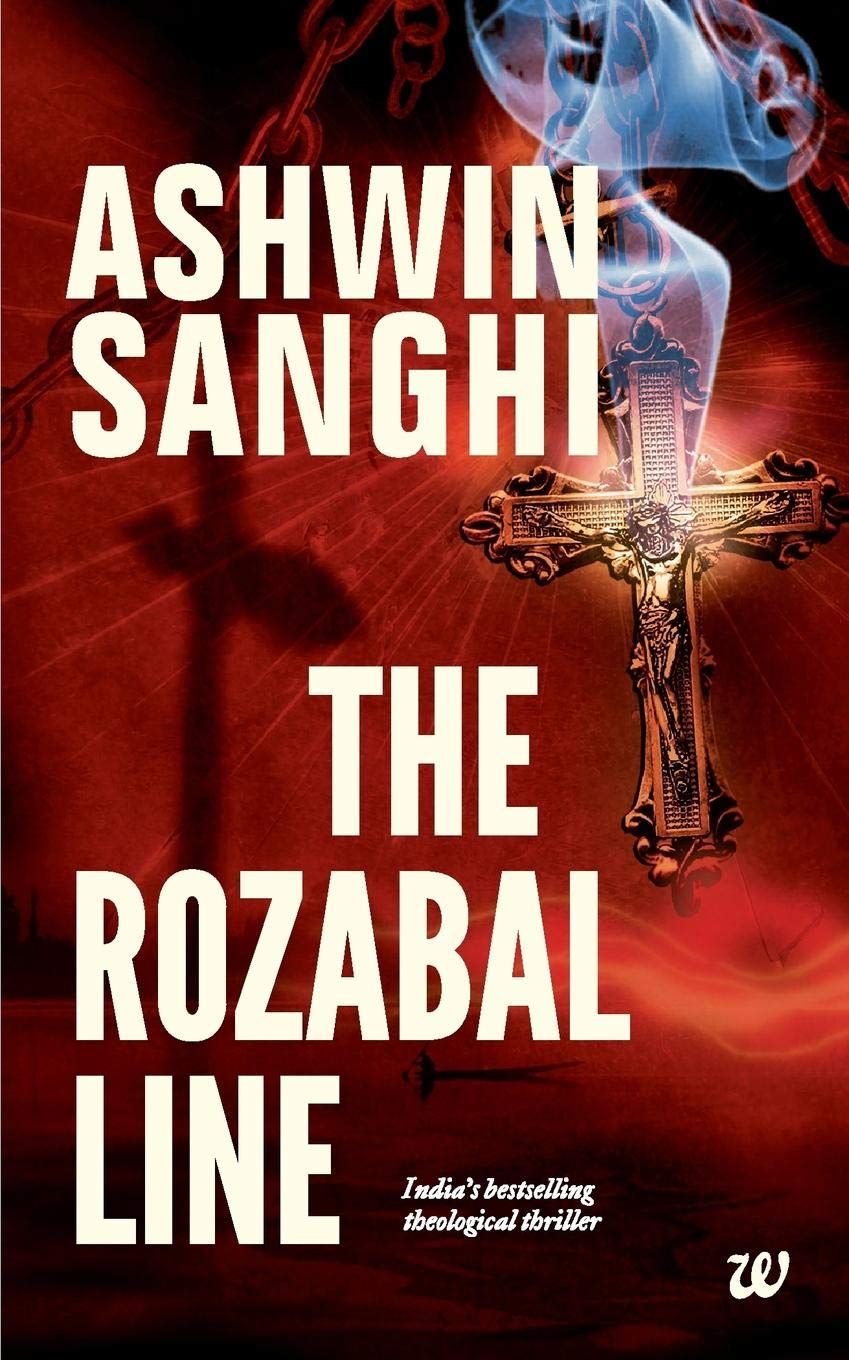
The historical fiction, The Rozabal Line also gives an episode of Crucifixion engaging Jesus.
Rozabal is a tomb in Kashmir, which has in it the key to a riddle from the ancient times.
The story flows lucidly without being predictable at the same time. Characters like Ghalib, Prithviraj, Elliot, etc were quite interestingly incorporated in the story.
The book has been criticised for the gaps in time created in the story, which makes it a little less emotionally relatable.
There are other instances where the story goes too fast to catch up- one, because there's a bunch of facts thrown at the reader and two, because there are so many characters in the story to keep hold of!
The twists in the story may make some readers lose their interest, midway...Quite frankly, this book is not exactly a light read!
However, I think the book keeps the reader
going, for the very same two reasons mentioned above.
Ashwin Sanghi through this book tries to question the authenticity of the theory that Jesus lived in India and died here.
This book is also said to be analogous to The Da Vinci Code by Dan Brown on many grounds.
I found this story as an evolving concept and look forward to reading more of Ashwin's work.
The Rozabal Line, may actually turn out a refreshing read for those who are just beginning to explore the genres of Thriller and Suspense!
Goodreads: 3.3/5
The Krishna Key
This book revolves around a historian Ravi Mohan Saini, coming from the Saini tribe of Punjab. He is a Historian who's suspected to have killed his friend Anil Varshney - an archaeologist, as Anil had decoded the script of an Indus Valley Seal.
Saini is also suspected to rob the key or the seal to unleash the enigmas of Lord Krishna's Capital in Gujarat- Dwaraka. Ravi Saini runs from the police to figure out the mystery.
The book tries to draw parallels between Saini and Lord Krishna- who emerged as a significant being, around 50 centuries ago!
The book gives an account of the Taj Conspiracy and characters like Radhika, Rathore and Priya Ratnani were some good characters that possessed a strength of purpose. Sanghi has also, very lucidly interweaved the explanation of the Battle aftermath of the Mahabharata.
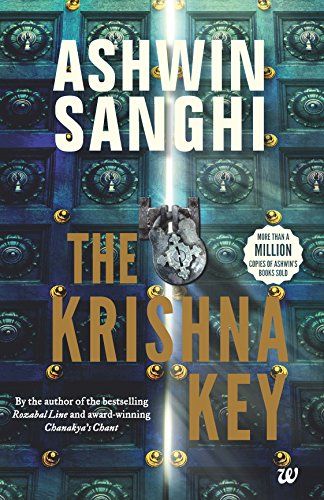
Ashwin Sanghi, has been an underrated author in some aspects when we look at how- many of his works have been compared to the very talented and popular author, Dan Brown.
Both of them have been writing on a common genre- Mythological Fiction. They should both be getting acclaim as individual novelists and not as those in competition!
However, when we talk about The Krishna Key, I have to say that it's writer went a little weak on the intensity of the concept's expression.
Whether it's the whole scheme of things that take place through the course of the story, a bit too easily, or the climax of the story!
There were certain incidences in the book which came across as too obvious!
By the end of the novel, readers may feel a sense of disappointment from the fact that the whole time, they were engrossed into something which didn't have a much reasonable verdict!
Sanghi probably missed the conviction that his well-thought concept deserved. I may conclude that it was a good read for the most part but the ending could have been more convincing.
Goodreads: 3.5/5
The Goddess in India
This book by Devdutt Pattnaik, has some profound concepts introduced with great ease.
Pattnaik has portrayed women quite differently. He identifies their existence in a Natural setting as beings who can have many layers in their personalities. On one hand, they are expressed through a dominant image who would step into the battles, while on the other hand, these women had submissive characters who demanded appraisal and appeasement! The Goddess in India is a compilation of goddess mythologies in India and their emergence has worshipped beings.
Also read: reference article
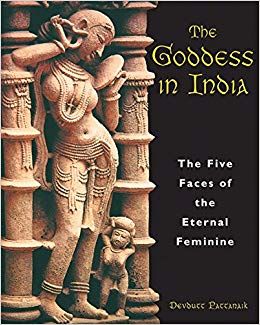
He has shown two contrasting perspectives- one in which the goddess is worshipped and the another in which the goddess is feared!
Devdutt goes deeper into the roots of cultures and traditions followed in India.
This book can be looked at as an encyclopedia of corrected Goddess Mythologies, indeed!
Goodreads: 3.8/5
Indian Mythology
Indian Mythology by Devdutt Pattnaik, bends towards polytheistic beliefs, that are very much unlike those of the western world. It is a collection of 99 Indian myths which is tried to be kept as 'raw' as possible.
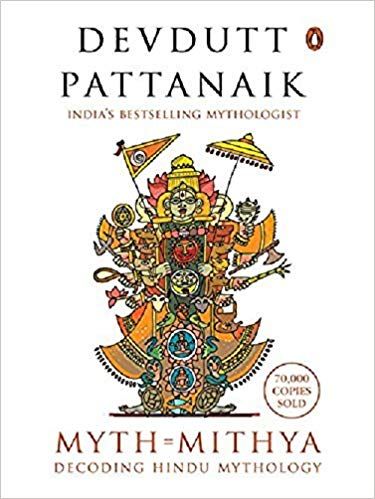
This book absorbs the reader into the core Hindu sensibilities. It tries to make the ends of Ancient and Modern India meet. The millennials are sure to be fascinated by this fusion! It gives the reader a very summarised glimpse of where 'Mythology' stands in India and how it came up.
The characters have been very patiently outlined within their Cultural and Historical contexts.
Goodreads: 3.8/5
"Indian literature from the ancient time was based on the mythological stories and works like sacred rhymes, poems, and stories. Mahabharat, Ramayan - the epics, the classic stories are believed as the written proofs of the presence of Gods on earth as humans. As time passed, topic and genre for literary works changed. New content, new ideas, and at last mythological stories once again got their importance in this present bookish society."
- Vandana V
Given below are some of the mythological stories/ books that we must-read-
ASURA
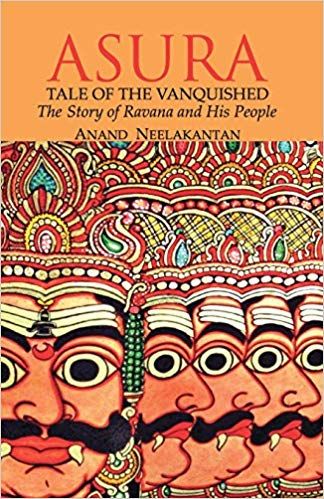
Asura by Anand Neelakantan is the epic tale of the Asura people. Ramayan has been re-written and retold in so many times, and different Ramayans exist which have slight changes from the original Ramayana written by Valmiki. Here, Anand Neelakanthan, a debut writer has chosen to reimagine Ramayan in Raavan's perspective. Often history is written by winners and hence we are aware of the story of the failed. The voice of the vanquished always remains silent. Always, mythological stories have the essence of events that seem unrealistic. Through this book, Asura, Anand has tried to give explanations to those fantastic events or unrealistic occurrences like Ten headed Raavan and Hanuman carrying mountain. The book tells the tale of Asuras, the story of an able and efficient ruler, Raavan. Raavan is always treated as an evil demon. But some of the literary works treat him as a hero. His way of writing a mythological epic in a different angle had attracted readers a lot.
SITA- The Warrior of Mithila.
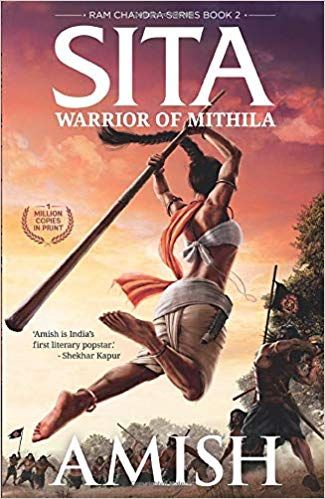
Sita- the warrior of Mithila, is the second book in the Ramchandra series by the Amish Tripathi. This book is mostly recommended than the first, The Scion of Ikshvaku. The reason for this is that the protagonist lady Sita is sculptured as a brave character . Amish had narrated the life story of Lady Sita perfectly. All the characters that we are familiar with is present in this book. Apart from the image we have about Sita, it is different in this book; she is plotted as a warrior, not just a woman with beauty and shyness. She is a protector. This is the inspiring story of Lady Sita's life and her struggles. The story starts with a child who was found in the field. Amish has narrated Sita's life from an adopted child to a brave lady finding her true meaning of life.
Shiva trilogy
________________
Amish Tripathi - a banker turned novelist is riding the book reading society to fall in love with Indian mythological stories. He is the beginner of the revolution of the mythological era with his book. And it started with his famous book series - Shiva trilogy.
1. The Immortals of Meluha
2. The Secret of Nagas
3. The oath of Vayuputras
Shiva Trilogy is the story of Shiva, who is believed as one of the Trimurti. But, Amish has recreated Shiva as a normal guy like us. That's what made his books a trendsetter. He is characterized as the leader of a tribe in the Tibetian region, who protects his people and chills like a common man. He drinks bhaang, he smokes weeds, etc. All the other characters who are also familiar to us are charted as normal but talented people. Some of them are Sati, King Daksha, Parvatheshwar, Brahaspathi, etc. Most of the characters are introduced in the first book, The Immortals of Meluha. Meluha is an advanced city where Shiva and his people arrive. Amish has well described the city as the developed with good facilities in every department, like advanced health and hospitality. The importance of Meluha is a medicine called Somras which helps the Meluhans immortal and this is what Shiva strikes the most and the whole series revolves around this medicine, its production, and the aftereffects. The arrival of Shiva in Meluha has its reasons. The people of Meluha are under the fear of terrorist attacks by the Chandravansis along with the Nagas. Meluhans, who believe themselves as the successor of Lord Ram or Suryavanshis, were waiting for the Mahadev, to protect them from the attacks. And fortunately, Shiva was the Mahadev or Neelkanth. The first was awesome, well written and is a page-turner. It gives an idea of the story and the hooded character, the leader of Naga is intriguing.
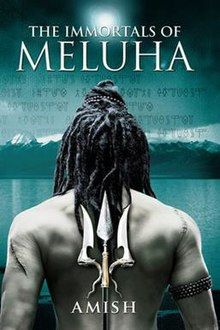
The second book, The Secret of Nagas, has equal importance in the reading society. This one is the most awaited read because the sequel stopped at a point where the readers were curious and highly waited for the next book. The secrets about the Nagas and the hooded figure will make the reader rethink the whole story from a new perspective. The second book is sufficiently enraging and reveals 80% of the series.
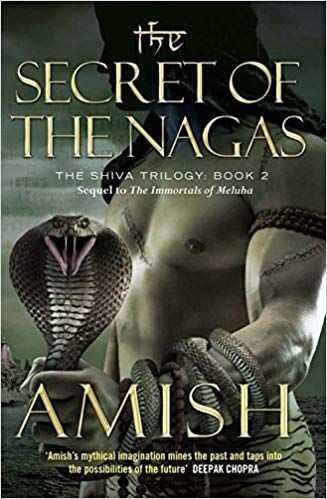
The third book, The Oath of Vayuputras is amazingly well written and will take quite a lot of time to finish this book. This book will make you emotional and at a particular instance, heartbreaking incidents happen and we may stop reading. But you can't stop reading because this book is like punching your gut at each page and each chapter.
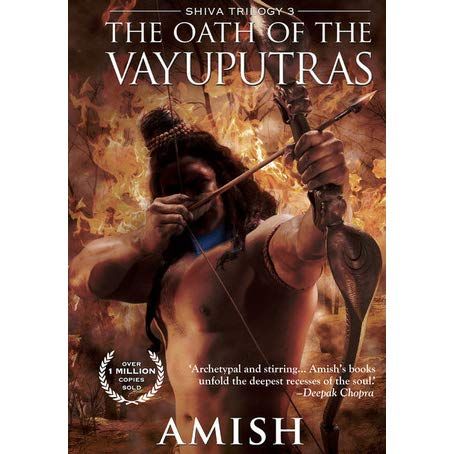
Overall, Amish has weaved Indian mythology, our traditions, and myths in his trilogy. He is a strong believer of Lord Shiva and it May be difficult for him to reimagine Shiva as a normal human. Amish's style of writing has made the readers easy to understand the intricate sequence of events. He has successfully connected these mythological stories to this era. The Somras, that we heard in grandma stories were produced from the mountain Manthar because the confusion about how it happened is solved in this series.
Overall rating - 4.7/ 5
The Immortals of Meluha - 4.8
The Secret of Nagas - 4.5
The oath of Vayuputras -4.5
Credits:
Reviews by Vidisha Pandey:
Palace of Illusions: Chitra Banerjee Divakaruni
The Rozabal Line: Ashwin Sanghi
The Krishna Key: Ashwin Sanghi
The Goddess in India: Devdutt Pattnaik
Indian Mythology: Devdutt Pattnaik
Reviews by Vandana V:
Asura: Anand Neelakantan
Sita- The Warrior of Mithila: Amish
Shiva Trilogy: Amish
The Immortals of Meluha
The Secret of the Nagas
The Oath of the Vayuputras
